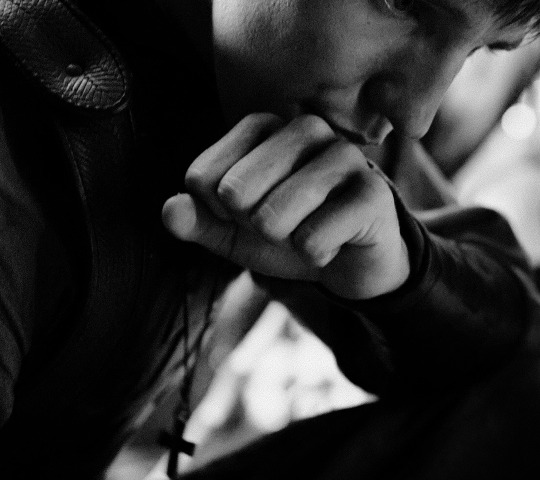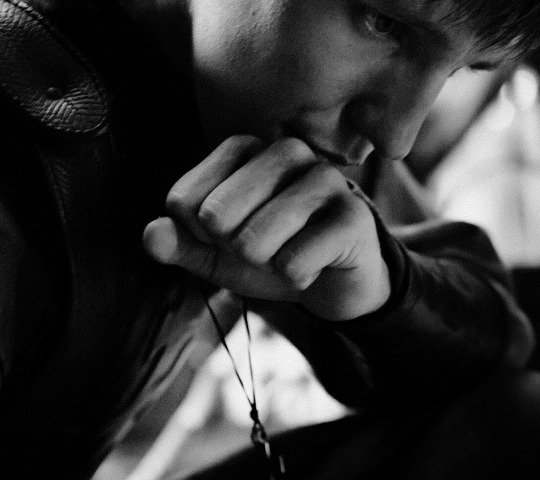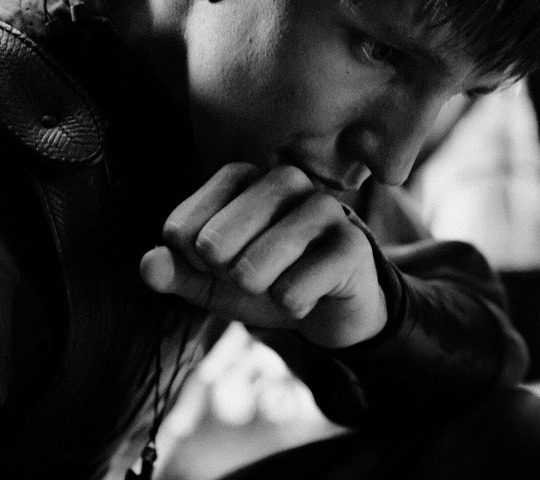#( CATECHISMS. )
Explore tagged Tumblr posts
Text

123 notes
·
View notes
Text

Satin Catechism 19 (2024)
236 notes
·
View notes
Text
Rosaries are not jewelry or fashion! Don’t wear it if you don’t pray it!
#Catholic#Catholicism#Rosary#jewelry#The Virgin Mary#Our Lady#Christian#Christianity#christian faith#christian living#jesus christ#Our lady of the rosary#mother Mary#Saints#Catholic life#Catholic saints#Christian life#theology#Catechism
65 notes
·
View notes
Text
if a teacher at a Catholic school is a poor role model of the moral life in a public way, they should be fired, simple as. if a teacher at a Catholic school cannot accurately describe and vocally affirm the teachings of the Catholic Church when asked, they should be fired, simple as. if a teacher at a Catholic school is known publically to be a non-practicing Catholic, they should be fired, simple as. Close schools if there aren't enough staff. I don't care. I'm sick of our Catholic schools disobeying the Bishop, the Church at large and pushing relativistic nonsense onto students as Catholicism.
#TAKE AWAY OUR PUBLIC FUNDING IT IS THE WORST THING TO HAVE HAPPENED TO OUR CATHOLIC SCHOOLS#we are public schools with crucifixes on the walls#the teachers are ministers of the faith and the Church has the right to select her ministers#literally it would be better to only have one Catholic school in the whole county that is upright and Orthodox than the entire school board#that we have now#if you want to teach at a Catholic school THAT badly be well catechized vocally support the Church and keep your disagreements and or#deviations private
232 notes
·
View notes
Text
Sorry I thought about Jesus reuniting with His father Joseph when He died and it broke me a little.
#tower of babble#christianity#catholic#saint joseph#st joseph#I can’t remember if it’s catechism or tradition that Jesus spent the three days afte the crucifixion personally ministering to the souls#of the just who died before he opened the gates to heaven#but the mental image of Jesus meeting Joseph who died before his son worked miracles…#all of Joseph’s hopes validated all of his fears realized that his son was really The Son and that his boy who he raised a carpenter#died on a cross for all… I am emotional.
44 notes
·
View notes
Text



#ewan mitchell#the cross necklace swinging is for the girls who were forced to go to catechism classes when they were young#look at where we are now#details
245 notes
·
View notes
Text

A skeleton, seated on his grave, awakens to the last trumpet on judgement day.
Inscription reads: “Rise dead and come to Judgement”
419 notes
·
View notes
Text
Society can’t convert our hearts but our converted hearts can convert society!
25 notes
·
View notes
Text

Emil Holárek - From the Cycle. Reflection of the Catechism.
22 notes
·
View notes
Text










[ Source: https://doi.org/10.1111/bjdp.12503 ]
Transformative tales: The role of story videos on children's reasoning about transgender identities
Abstract
The current study explored whether positive contact through stories could influence how young children think about transgender identities and gender in general. A total of 174 children ages 5–6 and 9–10 were randomly assigned to one of three conditions: Jazz (participants watched a video regarding a transgender child named Jazz), Blue (participants watched a video regarding a marker that looked red on the outside but inside was really blue) and control (no video). Both videos described the main character as feeling different inside than outside, and their social transition to their preferred identity; researcher scaffolding supported the video messages. Children who viewed the Jazz video had: (a) greater understanding of transgender identities and (b) no overall differences in gender essentialism, but (c) lower gender essentialism on three specific measures (gender immutability, innate toy behaviours and innate preferences). Also, gender essentialism was lower in older versus younger children. In this study, a direct, realistic story was the only effective means of teaching children about transgender identities and reducing belief in gender immutability. Thus, stories can be a way to teach children about the social world and change essentialist beliefs, but the impact may be limited and greatly affected by features of the story.




Catechism, a manual of religious instruction usually arranged in the form of questions and answers used to instruct the young, to win converts, and to testify to the faith.
==
If "gender" is not "immutable," why are we irreversibly medicalizing kids?
There are still some who insist this literally isn't happening and it's some QAnon-style paranoid conspiracy. Even though activists masquerading as "researchers" and "academics" are proudly and enthusiastically bragging about what they're doing.
Of course, when it becomes undeniable, the pivot comes swiftly: "It's good actually. It's just about teaching kids to be kind. Only bigots would oppose it."
You shouldn't be any more comfortable with indoctrinating kids with genderist faith - on the basis of teaching kids to be "kind" - than you are with indoctrinating kids with Xian faith - on the basis of teaching kids to be "good."
#Colin Wright#catechism#indoctrination#woke indoctrination#child indoctrination#childhood indoctrination#genderism#gender ideology#gender identity ideology#corruption of education#gender cult#religion is a mental illness
29 notes
·
View notes
Text

Somebody go wake up the Elias fans, chapter 5 is UP
#holy moly he was there for more than one panel#im happy to see him :)))#catechism comic#catechism comic spoilers
23 notes
·
View notes
Text

Satin Catechism 30 (2024)
53 notes
·
View notes
Text
Militant Atheist Becomes Catholic Deacon After Reading the Catechism - His Incredible Journey
"I let go of my last objections; nothing brings more tranquility and joy than doing the will of God."
#military#athiest#Catholic#Catholicism#catechism#conversion#faith#inspiration#church#deacon#religious life#amazing
91 notes
·
View notes
Note
i've read that mormons and JWs are considered heretics because they don't affirm the trinity, so i was wondering what the sort-of 'cut off' point is. like would the ACOE be considered heretics because they say mary isn't the mother of God, only the mother of christ, for example
Alrighty, this is a big one. So, as far as the Jehovah's Witnesses and the (mainstream) Latter Day Saints movement go, things are.... a little more complicated in terms of whether their doctrine is "heresy" or if they are just plain non-Christian (and thus wouldn't count as heretical).
The crux of the argument that they are not Christian is that they do not affirm the Nicene Creed, which was articulated during the Councils of Nicaea (325 AD) and Constantinople (381 AD). While Mormons and JWs can affirm the most primitive of Christian creeds ("Christ is Lord"), the Nicene Creed very quickly took on the status of the σύμβολον, or symbolum in Latin; the "symbol of faith," the creed whose affirmation is itself a verification of one's Christian identity. That's why during the Council of Trent, for example, the Tridentine Fathers invited Protestants to participate in the Council on the condition that they could still affirm the Creed.
Of course, Mormons and JWs do not see it that way. They self-identify as Christians; and each group doesn't see themselves just as Christians, but as restorers of a purer, more original Christianity that had existed before the creation of that Creed.
But, anyway, if the conclusion of this argument is accepted, and members of the (mainstream) Latter Day Saints movement and Jehovah's Witnesses are not considered Christian, they by definition cannot be considered heretics; per the Baltimore Catechism, heretics are "baptized Christians, but do not believe all the articles of faith" (Q 1170).
The Assyrian Church of the East affirms the Nicene Creed, have Apostolic Succession, and have limited intercommunion with the Catholic Church. And, Christologically, they have an interesting situation going on. The Assyrian Church has not formally accepted the dogmatic Christological definitions of the Council of Ephesus (431). And, on that alone, the ACoE would seem to fit into the Baltimore Catechism's definition of heretic.
But over 1550 years after that split, the leaders of both the Assyrian Church of the East and the Catholic Church signed a document that affirmed that both Churches saw the other's Christological doctrines as valid, and that both theologies were expressions of the same Apostolic faith. You can read the full document, which is not very long, here.
But to abstract the discussion of heresy for a moment (bold of me to do, admittedly, after saying the last ask was a little vague); we need to make a distinction between formal heresy and material heresy. As Pope Benedict noted in 1993, which itself was an echo of the 1912 Catholic Encyclopedia's description of heresy, the defining characteristic of formal heresy is pertinacia, which can be translated as "stubbornness." What makes a person a "heretic" in a condemnable sense is this pertinacia, this holding fast to falsehoods in defiance of correction by proper authority.
So while the first generations of Protestants may be considered formal heretics, Pope Benedict noted that this does not reflect the actual social and religious conditions of Protestants living today, who are simply living out their Christian faith in the traditions that have arisen since the Reformation. They may be material heretics, and the doctrines of Protestantism may be considered heretical from the Catholic viewpoint, but being a Protestant does not automatically incur the guilt of heresy.
And, in all honesty, most Christians alive today (and most Christians in all ages) have in all probability been material heretics - i.e., they hold some wrong or incorrect opinions concerning the faith, but simply out of ignorance and not in defiance of proper authority. And that is not a sin.
#asks#Christianity#Catholicism#Mormon#heresy#Jehovah's Witnesses#Assyrian Church of the East#catechism#Pope Benedict#Pope John Paul II#Council of Nicea#Nicene Creed#authority#Mar Dinkhia IV#Council of Trent#Protestant Reformation#Council of Ephesus
50 notes
·
View notes
Text
So I’ve started reading The Silmarillion and I don’t know if anyone else noticed this but the story of Aulë creating the Dwarves without Ilúvatar knowing, then in his shame and reverence for Ilúvatar being ready to destroy them, then Ilúvatar stopping him and letting the Dwarves live…
Am I tripping or is that supposed to be an allusion to the Bible story of Abraham and Isaac??
#the silmarillion#silmarillion#aule#eru iluvatar#CUZ LIKE#the Catholic in me who went to catechism for strangely excited that I knew the reference#and I just wanna know if I’m right#bc I also know Tolkien was very Catholic#jrr tolkien#tolkien#lord of the rings
27 notes
·
View notes
Text
good news kittens, apparently i CAN still write a 6 page, 2,700 word paper in a few hours
#lilac rambles#lilac's employment odyssey#the follow up questions were BRUTAL gals#i was whipping out the catechism and a letter from the congregation for the doctrine of the faith and all my critical thinking skills#i am. so worried this is crap.#but the questions were all personal opinion so i couldnt even ask for help!!!!!
26 notes
·
View notes